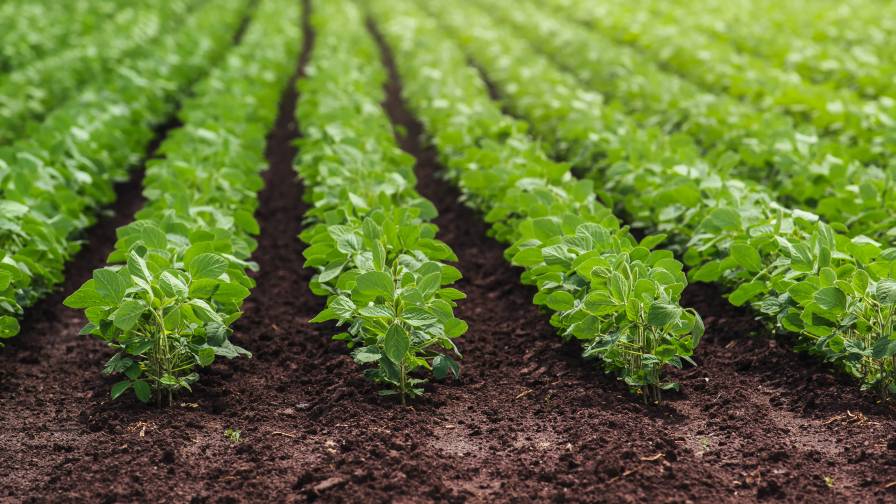The Future of Farming Faces Challenges, Opportunities
This fall Bayer CropScience spearheaded a three-day discussion on agriculture at its Future of Farming Dialogue 2018 meeting. Held at the company’s headquarters in Monheim, Germany, the event looked at the myriad opportunities and challenges facing modern agriculture across the globe.
According to Beth Roden, Head of Global Communications of the Crop Science Division, many of these efforts are being hampered by a serious disconnect between those inside and outside of agriculture. “The gap between those people that produce the food and those that consume it keeps getting wider and wider,” she said.
Liam Condon, President of the Crop Science Division, noted that because more than 800 million people still “go to bed hungry each day, having enough food is one of the biggest challenges society faces,” and there are no easy answers for meeting it. “Food is the new religion,” he said. “People define their personality by what they eat.”
Bob Reiter, Global Head of Research and Development of the Crop Science Division, added that today “is an amazing time” for agriculture around the globe. “Every grower faces 40 big decisions in every growing season on average,” Reiter said. “It’s our job here at Bayer to figure out how to bring all this needed knowledge together for them to do so.”
Condon and Reiter believed one of the newest agricultural innovations that holds promise to help make this possible is gene-editing or CRISPR. Tom Adams, CEO for Pairwise, added his views on this technology and its possible role in helping agriculture expand its production potential. “Gene-editing will change agriculture,” Adams said. “Coupled with the genomics and science we’ve already heard about, in 30 years or less we will see more innovation in crops than we’ve seen in the last 10,000 years.”
Some Challenges
Of course, these innovations will only occur if agriculture is allowed to employ new technologies, which remains to be seen. For example, Bayer’s Condon said, regulators in many parts of the world, particularly in the European Union, have been reluctant to accept new ag technologies, such as biotech crops. Gene-editing is getting the same kind of resistance, he said, with much of this based upon emotion rather than science. “All is not lost for the European grower,” Condon said. “But it’s clear regulation is becoming more of a challenge in terms of products we will allow growers to use. If the regulations were only science-based, this would be much easier.”
Then there’s the challenge facing one of the industry’s most popular herbicides, glyphosate. For some time now, regulators in Europe have debated pulling registration for the product despite the fact it has been in use since 1974. Recently a jury in California awarded damages of $289 million (reduced to $78 million by the judge) to a plaintiff who claimed glyphosate use gave him cancer.
To address this, Bayer held a special briefing during the Future of Farming Dialogue that specifically focused on the challenges facing glyphosate. As Bill Reeves, Regulatory Policy and Scientific Affairs Manager for Bayer, told attendees, the war on glyphosate goes deeper than just distrust of an herbicide.
“This is a political molecule,” Reeves said. “It’s not only a symbol of Monsanto, it’s a symbol of modern agriculture. In the U.S. it’s become a way to drive concerns among consumers about GMO [genetically modified organism] use. Consumers may not fully understand what GMOs are, but when you bring up the chemicals used to grow them, in this case, glyphosate, that’s an attention-grabbing ploy that has worked.”
Guy Smith, Deputy Director of the National Farmers Union in the United Kingdom and a grower, agreed with this view. “This is all about GMOs,” Smith said. “Glyphosate is a political molecule, and it’s being attacked to keep GMOs out of Europe. It’s amazing to me that other more dangerous chemicals, which are more harmful in smaller doses, don’t come under the same scrutiny that glyphosate has.”
Across Europe, Smith said he has encouraged all the groups interested in protecting glyphosate — the companies that produce it, scientists who have studied its safety, and the growers themselves — to speak out in its defense. He added that the fight to protect glyphosate use must be a priority. “If we lost glyphosate, we would lose the battle against many, many weeds,” he warned. “We must take the campaign against glyphosate seriously because if we end up having it banned, anything we use in farming could end up being banned.”






